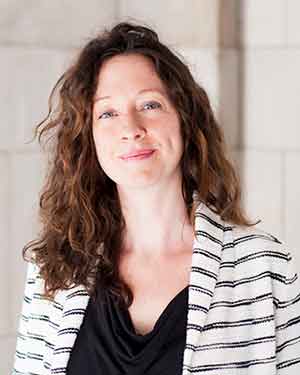 Vanderbilt University School of Nursing is joining fellow Tennessee school University of the South and more than 100 universities in 50 countries around the world to focus on a critical question: What can be done to help solve climate change while supporting struggling communities that have faced joblessness, sickness and loss?
Vanderbilt University School of Nursing is joining fellow Tennessee school University of the South and more than 100 universities in 50 countries around the world to focus on a critical question: What can be done to help solve climate change while supporting struggling communities that have faced joblessness, sickness and loss?
On Thursday, April 8, the School of Nursing will host a public webinar and community discussion on “Green Recovery, Climate Solutions and a Just Transition” from 1-2 p.m. CDT. The webinar is free and open to the public, but registration is required.
The April 8 event will feature local youth involved in climate issues as well as leaders in conservation and sustainability. Discussion members include William (Oscar) Fox, student body president, University School of Nashville, youth representative for Nashville Mayor’s Sustainability Council; Nia Gross, elementary student, Imani Montessori School; Eric Kopstain, vice chancellor for administration, Vanderbilt University and head of the university’s FutureVU initiative; and John Fenderson, TennGreen Land Conservancy, former senior manager of forestry at the National Wildlife Federation and southeastern regional director for the National Network of Forest Practitioners.
The webinar is one of 125 similar events to be held across the planet in early April as part of Solve Climate By 2030, a global project designed to involve school-age children, schools, universities and communities in offering solutions to climate change issues. In each country, state or region, students and community members will hear from local climate experts about concrete steps that can address on climate change while creating much-needed jobs and income.
VUSN Professor Carol Ziegler, DNP’12, MSN’06, is Vanderbilt’s webinar organizer and creator of a unique Vanderbilt University course on planetary health, policy and social justice. “The project name, Solve Climate By 2030, refers to research that says we have ten years to solve climate change. We can get a lot done in this decade if we focus the world on climate solutions and a just transition,” Ziegler said. “Dealing with climate change is essential to human health.”
Eban Goodstein, PhD, economist and director of the Center for Environmental Policy at Bard College, is the Solve Climate By 2030 organizer. The project has a library of easy-to-use teaching guides that can be used by teachers at the college, university and high school levels to kick off Earth Month and tie in with the VUSN webinar.
“You don’t have to be an expert on climate to talk with your students,” Goodstein said. ”Every subject contributes to understanding climate solutions. Whether you are teaching art, literature, business, philosophy or any other discipline, you can engage students in this critical dialog.”
VUSN and University of the South (Sewanee) are representing Tennessee as educational partners for Solve Climate by 2030.
Please register here to watch the webinar live, or if you would like to be e-mailed a link to the recording. For more info, contact carol.c.ziegler@vanderbilt.edu
 T
T